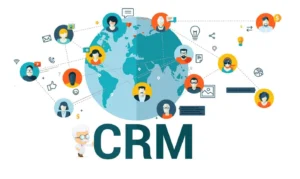Introduction to CRM Software
Customer Relationship Management (CRM) software has become an essential tool for businesses of all sizes in today’s competitive marketplace. These powerful systems help organizations manage interactions with current and potential customers, streamline sales processes, and improve customer service. At its core, CRM software serves as a centralized database that stores customer information, tracks communication history, and provides valuable insights into customer behavior.
Modern CRM solutions have evolved far beyond simple contact management systems. Today’s platforms incorporate artificial intelligence, marketing automation, and advanced analytics to help businesses build stronger, more profitable customer relationships. Whether you’re a small business owner looking to organize your client interactions or a large corporation needing to coordinate sales teams across multiple locations, implementing the right CRM system can transform how you engage with your customers and grow your business.

Key Benefits of CRM Software
Implementing a CRM system offers numerous advantages that can significantly impact a company’s bottom line. One of the primary benefits is improved customer retention. By maintaining detailed records of all customer interactions, preferences, and purchase history, businesses can provide more personalized service that fosters loyalty. CRM systems also enhance team productivity by automating routine tasks like data entry, follow-up reminders, and report generation, freeing up employees to focus on building relationships rather than administrative work.
Sales teams particularly benefit from CRM software through better pipeline management. Visual sales funnels allow representatives to track deals through each stage of the process, while automated alerts ensure no opportunity falls through the cracks. Marketing departments gain powerful tools for segmenting audiences, running targeted campaigns, and measuring results. Perhaps most importantly, CRM systems provide business leaders with data-driven insights through customizable dashboards and reports, enabling smarter decision-making based on real customer data rather than guesswork.
Essential Features of Modern CRM Systems
When evaluating CRM software options, several key features should be considered. Contact management forms the foundation of any good CRM, providing a centralized location for storing and organizing customer information. Advanced systems go beyond basic contact details to track social media profiles, communication preferences, and relationship maps showing connections between contacts within an organization.
Sales force automation tools help streamline the entire sales process from lead capture to closing. These typically include opportunity tracking, quote and proposal generation, and sales forecasting capabilities. Marketing automation features allow for email campaign management, lead scoring, and ROI tracking. Customer service components might include ticket management, knowledge bases, and live chat integration.
Modern CRM platforms increasingly incorporate artificial intelligence features like predictive analytics, which can suggest next best actions or identify customers at risk of churn. Mobile accessibility has also become essential, with most top systems offering full-featured apps that allow remote teams to access critical customer data anywhere. Integration capabilities are another crucial consideration, as the best CRM systems connect seamlessly with email platforms, accounting software, ERP systems, and other business tools.
Types of CRM Software
CRM solutions come in several varieties, each suited to different business needs. Operational CRMs focus on automating and improving customer-facing processes like sales, marketing, and service. These are ideal for businesses looking to streamline day-to-day operations and customer interactions. Analytical CRMs emphasize data analysis and business intelligence, helping companies uncover patterns in customer behavior and make strategic decisions.
Collaborative CRMs facilitate information sharing across departments, breaking down silos between sales, marketing, and customer service teams. Industry-specific CRMs cater to the unique needs of particular sectors like real estate, healthcare, or financial services. Deployment options also vary, with cloud-based SaaS solutions offering accessibility and automatic updates, while on-premise systems provide greater control and customization for organizations with specific security or compliance requirements.
Implementing CRM Software Successfully
Choosing and implementing a CRM system requires careful planning to ensure success. The process should begin with a clear assessment of business needs and objectives. Identifying pain points in current customer management processes helps determine which features are most important. It’s crucial to involve end-users in the selection process, as their buy-in will determine the system’s ultimate adoption and effectiveness.
Data migration presents one of the biggest challenges in CRM implementation. Cleaning existing data before import and establishing clear data governance policies prevents the new system from becoming cluttered with outdated or duplicate information. Training is another critical component, as even the most powerful CRM will fail if employees don’t understand how to use it effectively. Many businesses find it helpful to phase in implementation, starting with core features before rolling out more advanced functionality.
Ongoing evaluation and adjustment are key to maximizing CRM value. Regularly reviewing usage metrics and soliciting user feedback helps identify areas for improvement or additional training needs. As businesses grow and evolve, their CRM systems should adapt accordingly, whether through configuration changes, added integrations, or, in some cases, transitioning to more robust platforms.
The Future of CRM Technology
CRM systems continue to evolve with emerging technologies that promise to further transform customer relationship management. Artificial intelligence is being increasingly integrated into CRM platforms, enabling features like sentiment analysis of customer communications, predictive lead scoring, and automated meeting scheduling. Voice recognition technology allows for hands-free data entry and retrieval, particularly useful for field sales teams.
Blockchain technology may soon play a role in CRM by creating more secure, transparent ways to manage customer data and transactions. The Internet of Things (IoT) is opening new possibilities for proactive customer service, as connected devices can automatically signal when maintenance is needed or supplies are running low. Perhaps most significantly, CRM systems are becoming more predictive and prescriptive, not just reporting on past interactions but suggesting optimal future actions to maximize customer satisfaction and business outcomes.
As these technologies mature, the line between CRM systems and other business applications will continue to blur, creating more unified platforms that connect all aspects of business operations through the lens of customer relationships. Businesses that stay informed about these developments and adapt accordingly will be best positioned to build lasting competitive advantages through superior customer experiences.



